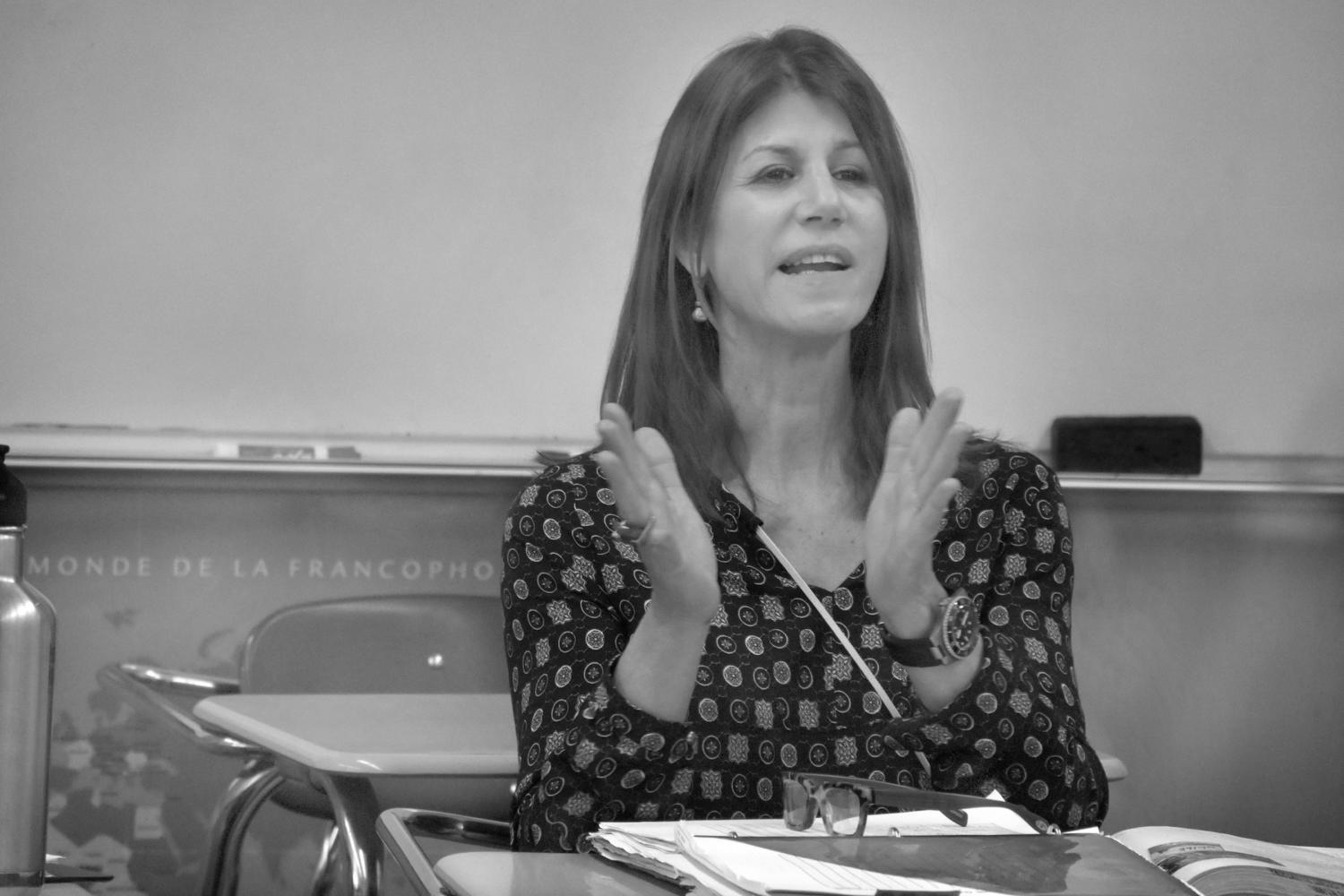Beloved French teacher leaving Lincoln
Monica Daucourt, a French teacher, is leaving Lincoln after this year. She will be teaching in Texas next year.
The well-dressed young woman walks into Hillcrest High School in Dallas, Texas, not knowing what to expect on her first day of teaching. During the next year, cops would walk into the class three times, a desk would be thrown out the window and a kid would remove his clothes.
It was a hectic school.
Yet in the moment, the teacher needed to find a way to settle the class. That’s when a girl, tall and built like a refrigerator, stands up on a table and yells to the class to be quiet. It does so and the teacher, Monica Daucourt, is able to start her lesson.
Now, 20 years later, she is a French teacher at Lincoln High School. She is one of the two French teachers at the Southwest Portland school Lincoln and has been responsible for teaching multiple classes. Now, however,But Daucourt is leaving the Lincoln community next year. She is moving to Texas and plans on teaching there as well.
The French program at Lincoln goes from 1-2 to 9-10 and includes other options such as film and history. It is taught by Madame Daucourt along with Monsieur Siegel.
For example, one of her classes — French history — covers the historical anthology of France with a literary and artistic component and is a fourth-year class. She brings an engaging teaching style to Lincoln’s French program.
Daucourt was born in Brooklyn, New York, in the 1960s. She went to the University of Texas for her undergraduate degree and the University of Bordeaux in the southwest of France. She went through many careers but settled on teaching after what she described as a near-death experience shortly after leaving France.
Daucourt says that the experience “made me reevaluate my life…what I wanted to do…I wanted to pass on the thing that opened up and made my life richest, that was travel and speaking another language.”
She then proceeded to Southern Methodist University for her teaching certificate, Texas A&M University for part of her graduate work and North Texas State.
At Lincoln she teaches French 1-2, French 5-6, French Film and French History. Each of them cover different topics and for that reasons she likes them. While each class is a different level, Daucourt believes that “none of them are more challenging than the others”.
In French 1-2, students learn the very basics and get what they need to move on to harder classes. Daucourt loves how in “the first year you take kids who knew nothing, you teach them the ABC’s and by the end of the year they can have conversations in the present and in the past”. The foundations can be difficult but with a well set program “the learning curve is huge.”
French 5-6 is considered to be a challenging course by students and by Daucourt.
Natalie Brauser, a sophomore at Lincoln, says that because you are “learning a lot of new material at a rapid pace,” the class is difficult compared to earlier years. Madame Daucourt thinks the third year is “sink or swim, either [students] drop it because they don’t have the tools or they get charged up because they realize they can.”
Brauser also mentions that this experience is made easier because Daucourt is “flexible with testing schedules and is always available during flex.”
Daucourt enjoys this level because the students “go from being able to communicate on a vary sophomoric basic level to be able to discuss political ideas, social idea, cultural ideas in more depth.”
The history class and film classes were created and are taught by Daucourt. She was inspired by her love of history to create a class that blends history and the literature that goes with it.
The film class is an elective, any student can take the course. Daucourt believes that this class is important because it uses “French film as a vehicle to bridge two different cultures and it shows not what separates us but what binds us.” She encourages those who “have never been exposed to french or France” to take the class because “it opens up europe and other ideas to them.”.
Learning a language is difficult but is made easier with a teacher who supports participation and has an organized teaching style. Sophomore Zia Bajwa comments on Daucourt’s teaching as “having an energy about her that makes the whole room interested and wanting to participate.”
She is also able to help her students learn culture in a way that they both remember and understand it. Bajwa explains what one method of this is, when “we go into a circle… it helps us memorize and learn, it’s kind of repetitive and nerve-racking but I remember the things so much better.””. In this circle students draw images on whiteboards that represent a key idea in a lecture and they go around and repeat the phrase that goes with each board.
Tori Siegel agrees that this circle is “helpful even though it’s stressful in the moment, [she] learns a lot from it and improves.”
Brauser thinks that “It is unique things like the circle that differentiate Madame Daucourt from other teachers and is why she will be well missed next year.”


Monica Daucourt • Feb 18, 2022 at 6:59 am
I am humbled and touched by this article. You all and Lincoln High, an exceptional school, will forever be in my heart. Merci infiniment.